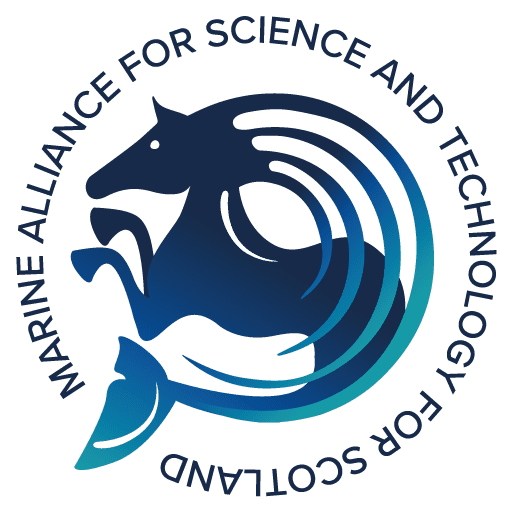On Friday 6th October, the conference facilities are opened up to allow for workshops.
See below for details about the workshops that are taking place at the 2017 ASM. Places on these workshops can be booked when you register online.
Two day workshop (5th/6th Oct)
- Auditorium A – Decommissioning and Wreck Removal (13.30-17.30 on Thursday 5th Oct and 8.45-12.45 on Friday 6th October). If this workshop is the only part of the ASM that you will be attending, please contact [email protected] for a registration discount code.
One day workshop (6th Oct):
- Level One Auditorium (09.15-15.30) – Cumulative effects of multiple stressors
Morning workshops (6th Oct)
- Conference room 1 (09.30-13.00) – EcoWatt 2050
- Conference room 2 (09.30-12.30) – Scottish Microplastic Research Group Meeting
- Conference room 4/5 (09.00-12.00) – Sustainable Aquaculture
- Conference room 8 (09.15-12.15) – BioTIME – how to interact with a biodiversity time series
Afternoon workshops (6th Oct)
- Conference room 4/5 (13.00-16.00) – MAREMAP: A Marine Environmental Mapping Network for the UK
Decommissioning and Wreck Removal
Organiser: Karen Seath
Timings & Location: 13.30-17.30 Thursday 5th & 08.45-12.45 Friday 6th October in Auditorium A
Details: Workshop schedule available here and full agenda here.
Download presentations from here
Download the final report here
Cumulative Effects of Multiple Stressors
Organiser: Prof Peter Tyack
Timings & Location: 09.15-15.15 in Level One Auditorium on Friday 6th October
Details:
09.15 Welcome
09.30 Prof Peter Tyack (St Andrews University) Review of the report “Approaches to Understanding the Cumulative Effects of Stressors on Marine Mammals”
10.00 Prof John Harwood (St Andrews University) Review of the conceptual model for Population Consequences of Cumulative Effects on Marine Mammals.
10.30 Morning coffee break
11.00 Prof Ailsa Hall (Director Sea Mammal Research Unit) Health assessments and multiple stressors: challenges and opportunities
11.30 Dr. Chris Brown (Griffith University) Managing for uncertain interactions among multiple stressors of marine ecosystems
12.00 Prof Colin Moffat (Marine Scotland Science) How Marine Scotland approaches cumulative effects, taking account of developments within the Regional Seas Conventions
12.30 Q&A and panel discussion
13.00 Lunch
13.30 Fiona Mills (Clyde Marine Planning Partnership Project Manager) Consultation: mobile species and the effects of noise in the marine environment
The Clyde and the Shetland Islands Marine Regions are developing regional marine plans. Assessments of the state of the regions have identified issues for mobile species and also the low level of understanding in terms of the effects of noise on the marine environment. There is also a requirement to consider cumulative impacts in marine planning. We would like to see how far (regional) marine planning (policy and spatial elements) can go to tackle these issues beyond any legislation that is already in place. We are keen to get the thoughts from scientists at this early stage of policy development. Can you help?
14.00 Frances Orton (University West of Scotland) Combined Impacts of Multiple Stressors on Survivorship and Reproduction
14.15 David Lusseau (Aberdeen University) The evolutionary context of cetacean physiological responses to foraging disruption by stressors
14.30 Alice Tagliati (Heriot Watt) Toxicity of titanium dioxide nanoparticle sunscreen formulations and simultaneous warming on corals’ symbiotic algae, Symbiodinium spp.
14.45 Nicola Allison (St Andrews) Interactive effects of seawater pCO2 and temperature on calcification and productivity of massive tropical Porites spp. corals
15.00 Ana Catarino (Heriot Watt) Bioavailability and Effects of Adsorped Triclosan to High-Density Polyethylene Microplastics in Oncorhynchus mykiss
15.15 Finish and close (coffee available in foyer)
EcoWatt 2050
Organiser: Jon Side
Timings & Location: Conference room 1 (09.30-13.00) on Friday 6th October
Details: A special session reporting the findings of the EPSRC funded research project on the effects of the removal of energy by tidal and wave arrays, and comparison with the predicted effects of climate change. At an earlier MASTS Annual Science meeting we reported on the EPSRC funded TeraWatt research which sought to answer a series of questions posed by the Scottish regulatory authority responsible for licensing marine renewable developments. These required the development of methodologies for incorporating wave and tidal devices within hydrodynamic models (MIKE3 and Delft3D) and their application to the first round of licensing for wave and tidal developments in the Pentland Firth and Orkney Waters. In our present study, EcoWatt2050, the TeraWatt consortium has been extended to include new partners with specialisms in climate change, marine mammals and seabirds, and has developed new models in the FVCOM Scottish Shelf model adopted by Marine Scotland. This session will report on the work that has enabled a comparison of climate change impacts against those predicted from the removal of energy on a range of species and biotopes. In addition EcoWatt2050 has addressed extensive array configurations, comprising very large scale arrays deployed not only in Orkney and the Pentland Firth but also in other regions of Scottish Shelf Seas. All are welcome to attend.
Download EcoWatt 2050 workshop programme
Scottish Microplastics Research Group
Organiser: Marie Russell and Brian Quinn
Timings & Location: Conference room 2 (09.30-12.30) on Friday 6th October
Details: Meeting of the MASTS community project Scottish Microplastics Research Group (SMRG) to discuss various aspects of microplastics in the marine environment. We hope to cover issues relating to monitoring and recent research developments in the area of microplastics in the Scottish environment. Contact Marie if you are interested in contributing a talk to this workshop.
BioTIME – how to interact with a biodiversity time series
Organiser: Faye Moyes
Timings & Location: Conference room 8 (09.15-12.15) on Friday 6th October
Details: BioTIME is an extensive resource for biodiversity analysis. It is a curated database featuring over 12 million records belonging to a total of 380 individual time series from across the globe.
This workshop will aim to illustrate the ease of producing an informative report given input data in a set format. We will first introduce the participants to bioTIME and its overall structure, and exemplify how it can be a useful tool for a broad range of researchers and stakeholders. We will use R scripts on a ‘ready-made’ input dataset to show set outputs such as trends in S, beta diversity, species lists and maps of locations. We then plan to build on this in an interactive manner in order to co-design with participants a final document that will prove both interesting and useful and where participants input will be most valuable.
Participants are invited to bring their own data (i.e. ecological community level temporal data), and may also contribute data to bioTIME, which is a growing effort mobilising time series data.
Expected Outcomes/Outputs: Co-design of informative reports on aspects of marine biodiversity Promote understanding of marine biodiversity patterns Promote the importance of data sharing and collaboration Facilitate future data sharing and collaboration, with data users and providers, as well as with stakeholders
Sustainable Aquaculture
Organisers: Adam Hughes, Joanna Gosling & Brendan McAndrew
Timings & Location: Conference room 4/5 (09.00-12.00) on Friday 6th October
Details: ARCH-UK (Aquaculture Research Collaborative Hub) is a UK Research Council (BBSRC and NERC) aquaculture network designed to sign-post and coordinate £4 million of research council funding. This workshop aims to:
1. Update you on ARCH-UK activities so far – SAIC will also give an update
2. Showcase successful projects from previous Aquaculture Initiative funding rounds
3. Gain feedback from the aquaculture community on the recently drafted ARCH-UK research prioritisation reports that will inform the next RCUK aquaculture funding round.
MAREMAP: A Marine Environmental Mapping Network for the UK
Organiser: Keith Westhead
Timings & Location: Conference room 4/5 (13.00-16.00) on Friday 6th October
Details: Launched in 2010 and supported by NERC, MAREMAP (Marine Environmental Mapping) succeeded in bringing together the UK seabed mapping community in terms of our shared experience and as a forum to develop new techniques and collaborate on projects. The MAREMAP partnership continues to work together today but the research and information landscape within which it operates has changed significantly. So during 2017 we are consulting on a new approach to our network – one that is more responsive to UK stakeholder needs.
Our aim is to revitalise the MAREMAP partnership as a ‘marine environmental mapping network’ for the UK, with the aim to bring together organisations involved in marine environmental science. There will be less of a focus on online delivery of spatial information through MAREMAP (which is now undertaken through a range of established portals, including EMODnet), and more of a focus on sharing science ideas and undertaking collaborative pilot projects aimed at improved spatial characterisation of the marine environment. It is hoped this refreshed MAREMAP network will include increased involvement from universities and industry.
This workshop marks a stage in this revitalisation of the MAREMAP network, where we hope to engage with members of the MASTS community who wish to find out more about MAREMAP and potentially join the network. A MAREMAP futures event will be held soon after this workshop to plan the way forward for the science network with wider UK stakeholders.
Expected Outcomes/Outputs: To bring individuals and organisations involved in marine environmental science spatial mapping together, to update them on the revitalised MAREMAP network, and to share ideas and discuss potential collaborations. To engage with stakeholders in order to determine what their needs are and how the MAREMAP network can address these.

